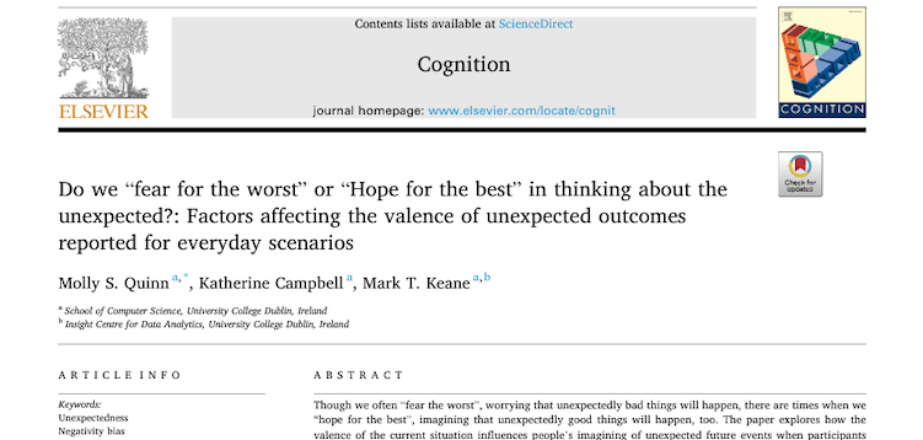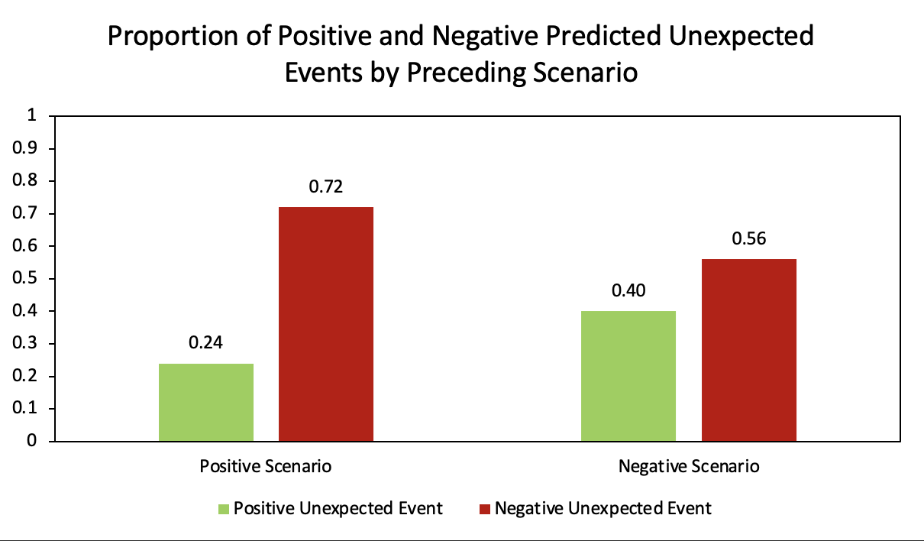UCD-Insight Collaboration Wins Prestigious Publication Award
Blog
- International Women’s Day: Celebrating Ad Astra Scholar Ava Canning
- Chinese New Year 2024 Celebration
- MSc Advanced Software Engineering Alumni
- Generative AI in Computing Education: Wrecking Ball or Holy Grail?
- My internship in digital strategy at Limerick City & County Council
- Clown Computing 101
- International Men's Day 2023
- Top marks for ChatGPT in the Leaving Certificate Computer Science Examination
- Alumnus Interview
- Student profile: Pasika Ranaweera, PhD student
- Staff profile: Associate Professor Neil Hurley, Head of School
- UCD CS PhD candidate award from IEEE Consumer Electronics Magazine
- UCD-Insight Collaboration Wins Prestigious Publication Award
- W@CS Alumni Roundtable
- Staff profile: Dr. Fatemeh Golpayegani
- Interning at a Smaller Tech Company
- Powering through the pandemic: My Remote Research Internship Experience
- Exploring Sense of Belonging in Computer Science Students
- Student Inter-Society Tech & Enterprise Meetup (SISTEM) held in UCD
- Computer Science Research and the COVID -19 Pandemic
- Zoom fatigue: how to make video calls less tiring
- SIGCSEire Launched at UCD CS
- Best Paper at the International Conference on Case-Based Reasoning (2019)
- ‘Spare tire genes’ explain why some genes can be lost by cancer cells
- Bi-annual CS Graduate Research Symposium
- UCD CS Postdoctoral fellow Claudia Mazo selected as a member of the ACM Future of Computing Academy
- Security, Privacy and Digital Forensics in the Cloud
- Chidubem Iddianozie: PhD student and GitHub Ambassador in UCD
- UCD CS PhD student selected to attend the Heidelberg Laureate Forum
- New Project: Evidence-Based Decision Support for Real-Estate Investment
- UCD projects celebrate Europe Day
- Research Award at the 2019 ACM SIGCSE Technical Symposium on Computer Science Education
- Top Tips for Student Scholarships
- I am a Computer Scientist and a Cancer Biologist
- Critical thinking and data ethics in UCD CS
- Teaching at BDIC Beijing
- Reading 35,000 Books
- Secret to a Great Internship
- 12 Tips for PhD Researchers
- Buddy Coders - a new initiative to support women in Computer Science

Are Unexpected Events Positive or Negative Events? It Depends Where You Start
Our 2021 paper investigating the cognition of unexpected events, shows that while people mainly think of unexpected events as being negative events, certain preceding events can change that attitude. This paper won the Early Career Publication – PhD Award from the European Society for Cognitive Psychology ((opens in a new window)https://www.escop.eu/awards-en-funding/awards/early-career-publication-award). ESCoP said, “The paper addresses very novel questions about how people think of unexpected future events. It is highly original and covers a large amount of literature. It is also well written and represents clear theoretical progress.”
Something about asking for an unexpected event makes people think of negative events, but when asked for a good and unexpected event, people are able to think of things like winning the lottery or bumping into a friend. So, it is not that good unexpected events do not occur nor that people cannot imagine them when asked. Instead, it may be the negativity bias, or the bias that makes people tend to focus on negative events and information rather than positive.
How can we avoid this bias? One way we investigated was to show people stories that started out either positively or negatively, and ask for the next, unexpected event. When shown positive stories, people thought mainly negative unexpected events would occur. However, when events in the stories were already negative, predicted unexpected events were less likely to be negative and more likely to be positive.

Specifically, if events are already negative, predictions of negative unexpected events were reduced to 56% compared to 72% when events started out positively. Meanwhile, positive unexpected events increased by 67% when preceding events were negative compared to when events started out positively.
While we cannot completely remove the negativity bias by presenting negative information first (the majority of unexpected events are still thought to be negative), we have shown that we can reduce the probability of a negative event being predicted by pointing out information that is already negative. This shows that people use valence information in the preceding events when considering what might happen next. In fact, this might be useful to know for many prediction tasks and for practices in cognitive behavioral therapy that ask patients to think of all possible outcomes, including the positive ones.
The paper titled, “Do We “Fear for the Worst” or “Hope for the Best” in Thinking About the Unexpected?: Factors Affecting the Valence of Unexpected Outcomes Reported for Everyday Scenarios” is peer-reviewed and available online at Cognition

Molly has been pursuing her PhD in the UCD School of Computer Science, under the supervision of Prof. Mark Keane, in the general area of the Cognitive Sciences and Artificial Intelligence. She holds a BA (cum laude) and an MA in Psychology from the University of South Florida in St. Petersburg, USA (her home town)
Published 30.09.21